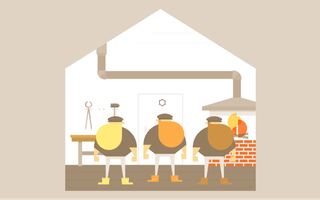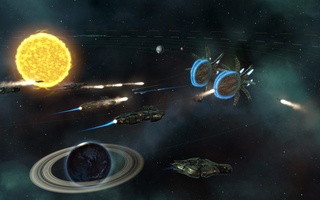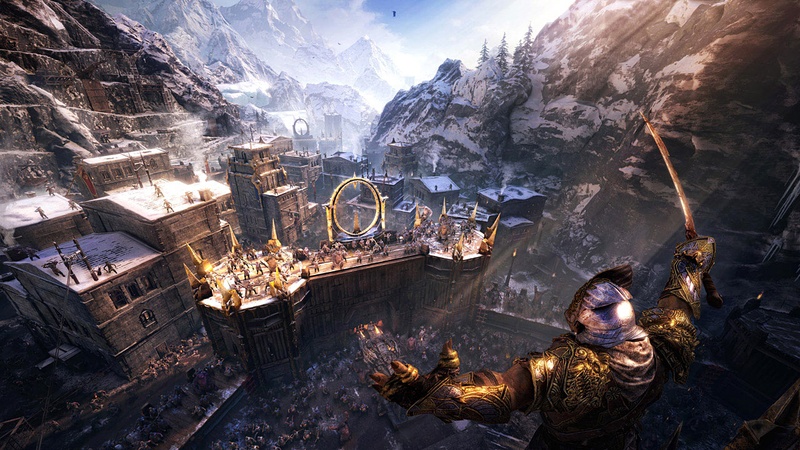As gaming systems become more technologically advanced, they can support higher-resolution, longer cutscenes, which means that some games seem more like movies, with tens of hours of scripted narrative content. This is a good thing.
But one trait video games seem to have inherited from the older industry is a fear of new ideas—or rather, a fear of doing something that hasn’t already performed well. Looking at the numbers, it can be difficult to understand why. Independent, or “indie,” game production is at an all time high, as game-making] tools become cheaper and more accessible. But the largest companies, like the AAA, or household-name studios like Ubisoft (of “Assassin’s Creed” fame—look for our review of their latest iteration in the coming weeks) and publishers like Activision-Blizzard (who just released the fourteenth game in the “Call of Duty” franchise) display a real reticence to create games that might flop.
So it is with “Shadow of War,” Monolith Games’ follow-up to their hit action-RPG “Shadow of Mordor.” This game continues the one-dimensional main character Talion’s quest to defeat Sauron and protect Gondor by utilizing the mystical abilities of the elven wraith Celebrimbor, the smith who forged the One Ring in the Lord of the Rings trilogy. Talion is bound to Celebrimbor in a symbiotic relationship: Talion cannot be permanently killed, and Celebrimbor is free to enact his revenge and power-grabbing schemes from beyond the grave. Nothing in that respect has changed in “War” since the last title.
The main selling point of “War” is not its narrative. Similarly to the “Batman” series, its main draw is a slick combat engine employed to great effect alongside the Nemesis system, a truly impressive feat of engineering which randomly generates orc enemies for you to combat. The system, as suggested by its title, works to develop a bond between the player and the orcs they fight against. If you are killed by an orc, they’ll taunt you about it next time you see them. This is the most impressive part of the game, and it’s even more memorable and intricate in “War” than it was in “Mordor.”
But other than the addition of regions (which, though they do much to broaden the game’s scope, doesn’t actually change the core gameplay experience very much) and refinements to existing systems, “War” is mostly the same game as “Shadow.” You are the same parkouring, orc-murdering, magic-wielding, boring protagonist from the first game. This isn’t necessarily a bad thing. “Shadow” is one of the best games of its kind in terms of systems. If you’re the kind of person who skips cutscenes and doesn’t really need an explanation for why you’re systematically mowing down hordes of different-yet-the-same enemies, you will enjoy this game. The combat is crisp, stealth is satisfying, and the mechanics are almost beyond reproach.
But if you’re looking for a Lord of the Rings game that you want to play for more than just the gameplay, with intriguing plotlines and mechanics that make it worth your while to play for more than a few hours, I’m afraid you might want to look elsewhere. Monolith has done a truly fantastic job setting up their game system, but it suffers from a boring main storyline, a lack of guidance for the player across its multiple questlines, and systems which become less compelling the longer you play.
Let’s talk about Talion. He ostensibly has thoughts, of which we hear very few, and all along the same line: “I hate Sauron because he killed my wife and son, vengeance will be mine.” He gets a few good lines in the game, mostly thanks to his interactions with other characters—Bruz, an orc who helps the player learn the mechanics behind Fortresses, the region-wide extension of the Nemesis system, and Ratbag, a zany orc whose ambition and cowardice combine to make him an unlikely ally. The combination of heard-it-before character motivation and unimaginative narrative scenarios combine throughout the game to form a profound feeling of “meh.” That sensation is only underscored by the brief moments of interest which occasionally shine through the muck of mediocrity to remind you that the game could have been great in this respect as well.
There aren’t any characters written strongly enough to carry the game on their own merit, but the game introduces a few who certainly would have been more interesting as main characters than Talion. There’s Eltariel, Galadriel’s assassin, who wields her power against the Witch King and his Nazgul followers. She would have been at least marginally more interesting as a character while also allowing the developers to create distinct abilities for her (much the way Bethesda Softworks’ “Dishonored 2” gave the main character’s daughter from the first game distinct abilities from her father, allowing for new gameplay scenarios). Baranor, a Gondorian captain serving under a corrupt general and the first black character in the franchise, would have provided similar opportunities for the narrative to develop and for this game to feel less like an extension of its predecessor.
“War” is fundamentally the same game as “Shadow”: a bit more polished and on a much larger map, but still the same core gameplay loop. When I started the game, it didn’t feel like a new experience. It felt like more of the same. Is more of the same, when the same is really good, worth sixty dollars? For some, it would be. “War” is a great game, really, but it lacks a spark, something to help it rise above the other content released this season. Until Monolith finds that spark, the “Shadow” franchise will only be a good series, not a great one. In many ways, “War” is a story of missed opportunities. Monolith has created a good game, but it serves mostly to remind players that it could have been a great game had the studio been slightly less risk-averse and slightly more adventurous.
—Staff writer Noah F. Houghton can be reached at noah.houghton@thecrimson.com. Follow him on Twitter @Crimson_NoahH.
Read more in Arts
Alumni Spotlight: Tyler E. Spindel ’07Recommended Articles
-
HARVARD 28; TUFTS, 10The University basketball team defeated Tufts Saturday in the Gymnasium in a fast, rough game by the score of 28
-
FOOT-BALL CONVENTION.THE meeting of delegates from Harvard, Princeton, and Yale took place at Springfield, Wednesday, October 9. A telegram from Columbia
-
 A Charming Journey with 'Burly Men at Sea'
A Charming Journey with 'Burly Men at Sea' -
 War and Peace in Space: 'Stellaris: Utopia' Enhances Galactic Empire Sim
War and Peace in Space: 'Stellaris: Utopia' Enhances Galactic Empire Sim -
 “Empires of the Undergrowth” Early Access Shows Promise
“Empires of the Undergrowth” Early Access Shows Promise














